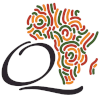Africa is the second largest and the second-most populated continent in the world. It has a population of 1.2 billion people, almost the size of India. Africa is home to 54 recognized sovereign states and countries, 9 territories and 2 de facto independent states with very little recognition. The population in Africa has grown rapidly over the last 40 years and it has a relatively young population, with more than half of the population under 25 in some countries. There are large number of women in Africa who have no access to family planning families, In addition, there is a high proportion of younger people within the Africa population as a whole, with reports that 41% of the African population is under the age of 15. The life expectancy is also low – less than 50 in many nations and averaging 52 across the continent as a whole. This has reduced considerably over the course of the last twenty years with a widespread HIV and AIDS epidemic taking much of the blame for that statistic.
Africa is also the region with the highest proportion of people living on less than one dollar a day and the only one in which poverty has risen in absolute and relative terms since 1980. Its major challenge has been the reduction of high incidence of poverty in the continent, which has been one of the key MDGs and now SDGs. To achieve this, African countries need to build and pursue strategies to promote sustainable growth with equity, with a special emphasis on accelerating the empowerment of women, addressing gender inequalities, increasing livelihood opportunities and improving healthcare.
For years, Africa has also suffered with huge gap in provisioning information and services to its people especially the rural, under-privileged and isolated communities especially. Many agencies have implemented social programs on the African continent but only a handful of them have really scaled it to a level or impacted in a real way. It has been evidenced that newer technologies like mobile and other emerging technologies have a potential to bring in transformative change by substantially improving accessibility, affordability and effectiveness of social programs, thus enabling human development. ZMQ Africa aims to revolutionize the whole of Africa by introducing proven models of social innovation and technology in various sectors like healthcare, education, livelihood, agriculture and rural development.
